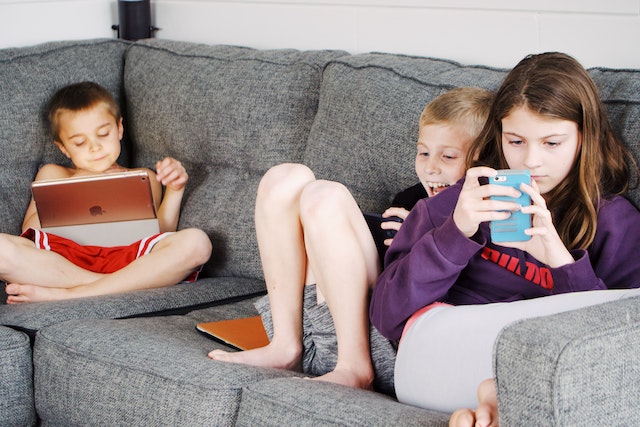Technology has revolutionized the way we live our lives, and children are growing up in a world where technology is a ubiquitous presence.
From smartphones to tablets to computers, screens are a part of daily life for many children.
However, the amount of time kids spend on screens has become a major concern for many parents and experts.
Here’s what you need to know about the screen time dilemma:
The Benefits of Technology There’s no doubt that technology has brought many benefits to children’s lives.
It can be a powerful tool for learning, with educational apps, online resources, and interactive tools that can engage kids and help them develop new skills.
Technology can also be a source of entertainment, with games, videos, and social media platforms that can provide hours of fun and enjoyment.
The Risks of Too Much Screen Time Despite the benefits of technology, there are also risks associated with excessive screen time.
Studies have linked high levels of screen time to a range of negative outcomes, including poor sleep quality, reduced physical activity, and increased risk of obesity.
Excessive screen time has also been linked to lower academic performance and increased risk of behavioral and emotional problems, such as anxiety and depression.
Setting Limits on Screen Time So, what can parents do to manage their kids’ screen time?
The key is to find a balance between the benefits and risks of technology.
This means setting reasonable limits on the amount of time kids spend on screens, while also allowing them to enjoy the benefits of technology.
The American Academy of Pediatrics recommends that children ages 2-5 have no more than one hour of screen time per day, while older children and teenagers should have consistent limits on the amount of time they spend on screens.
These limits should be tailored to each child’s individual needs, taking into account factors such as age,developmental stage, and interests.
Creating a Screen Time Plan To set effective limits on screen time, parents can create a screen time plan that outlines when, where, and how their kids can use screens.
This plan should be clear and consistent, with clear rules and consequences for breaking them.
It’s important to involve kids in the creation of the plan, so they feel ownership and responsibility for following it.
Parents can also use tools and resources to help manage screen time, such as parental controls, screen time apps, and screen-free activities.
These resources can help parents monitor their kids’ screen time, set limits, and encourage healthy habits.
In conclusion,
The screen time dilemma is a complex issue that requires a thoughtful approach.
While technology can bring many benefits to children’s lives, excessive screen time can have negative consequences.
By setting reasonable limits on screen time and creating a clear screen time plan, parents can help their kids enjoy the benefits of technology while also promoting healthy habits and well-being.
![]()








